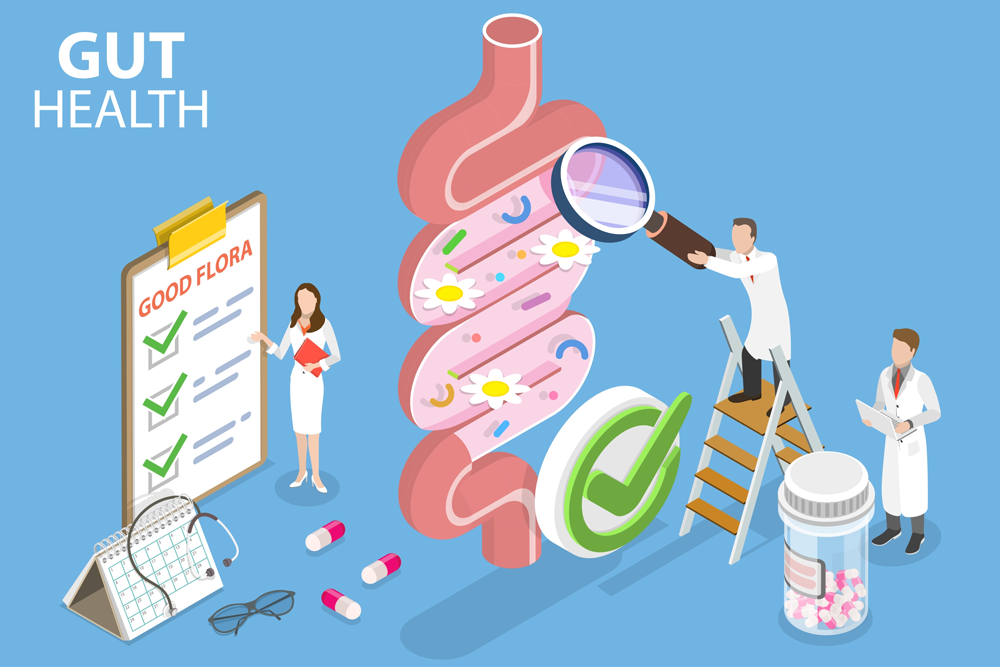Your gut microbiome
Your gut microbiome is a parallel universe of all kinds of different microorganisms running through your digestive tract, from your mouth right down to your anus.
Most of these organisms are bacteria, and there are lots more of these than there are cells in your body – about ten times as many. The balance of the bacteria in your digestive system has implications for your health in general. In short, it’s important to have the right kinds of bacteria in the right places. It matters that the ratio of good to bad bacteria works – when you’re out of balance (there are more unfavourable bacteria and other microorganisms) nutritionists call this ‘dysbiosis’.
Dysbiosis can result in your digestive system becoming a more favourable environment for yeasts like candida or parasites. There are some places you don’t really want many bacteria, whether good or bad, like in the small intestine. Your body really should do a daily swoosh of all bacteria from the small intestine down to the colon (it’s called the Migrating Motor Complex).
There are many reasons why this might happen – like having had food poisoning in the past – and the result is that the bacteria left behind feast on the food you’re eating, causing bloating, wind, feelings of nausea, diarrhoea and constipation (or a combination of the two).
5 Important things your gut bacteria do for you:
Kill bugs and hostile bacteria
These can cause unpleasant symptoms or disease – like the ones that cause food poisoning or stomach ulcers.
Boost your immunity
70% of your immunity is in your gut and the immune tissue in your digestive system is very sensitive to bacterial activity. The good bacteria also encourage the body to make a particular kind of antibody that stops you getting sick.
Improve digestion
Some bacteria help you break down particular foods and even help with the muscular contractions that move food through your system – thus keeping you regular.
Make vitamins and help you absorb nutrients better
Your gut bacteria are responsible for making many B vitamins, and these same bacteria help you absorb minerals in the food you eat better
Protect against disease
Some bacteria produce enzymes that turn dietary fibre into short-chain fatty acids (SCFA). This is interesting because these SCFAs can help protect against heart disease by regulating cholesterol and positively impacting fats in the blood.
Hippocrates said “all disease begins in the gut” and since we know the digestive tract runs from the mouth downwards, common symptoms in between are: acid reflux, bloating, constipation and diarrhoea, leading to symptoms such as fatigue, headaches, trouble losing weight, brain fog, anxiety, depression and joint pain.
In order to fully understand what is going on inside your microbiome I recommend my clients do an advanced stool test inorder to provide clinical information for the management of gastrointestinal health and take away the guessing.
Stool tests include markers to assess inflammation, immune function, digestion, gut barrier health and occult blood, plus information on potential candida, bacteria and parasites.
I commonly see a lack of digestive enzymes in a report and without these enzymes your body cannot digest food correctly. This leads to gut symptoms and malabsorption, meaning less nutrients moving through your body to make energy.
Enzyme rich foods include
Pineapple, mango, kiwi, papaya, fermented foods, ginger, coconut oil


